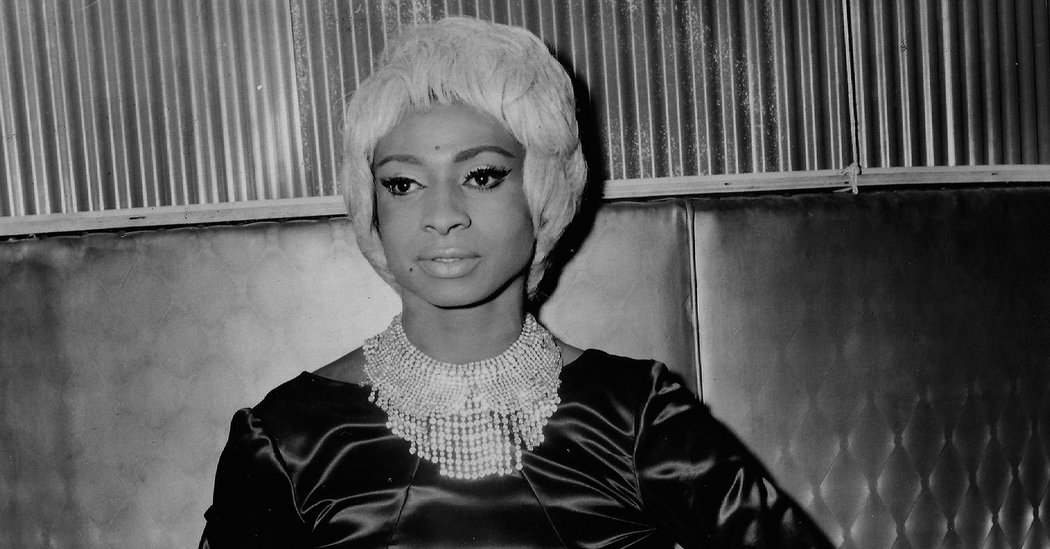One of the things specialty reissue labels do best is dig up records forgotten by the mainstream, but which proved enormously influential to small groups of artists. As opposed to budget no-name labels, companies like Mosaic, Light in the Attic, or Numero Group go the extra mile: they dig up master tapes, include detailed liner notes and, if possible, get permission from the artist themselves. And on Any Other Way, Numero has done one of their best jobs yet.

If the name Jackie Shane doesn’t mean anything to you, you’re far from alone.
In the mid-60s, she was a regional hit – mostly in Canada, but with pockets in the US – with a string of independent singles. Never signed to a major label, Shane released these singles and one full-length record – about 90 minutes of music – before vanishing into obscurity. But most notably, Shane was openly trans in a time when that wasn’t even considered an option by society. With her appearance, musical subtexts and commanding stage presence, she arguably opened the door for many other artists.
Shane was born in 1940 in Nashville, Tennessee. As a teen, she started in the music biz as a drummer, playing her kit standing up (well over a decade before Slim Jim Phantom “invented” the gimmick). Before long, she was working as a session artist and gigging around Nashville, but split for Canada as racial tensions rose in the city. It was in Toronto and Montreal she had her biggest successes.
The studio disc on Any Other Way opens with her version of “Sticks and Stones,” which rips by at light speed.
But as the band pounds away, Shane works the quick tempo with ease, building her delivery up to a frenzied peak.
The flip side of that single is the set’s title track. Easily her best known song, this slow blues has Shane’s singing at it’s most nuanced, dipping into her voice’s lower register on the chorus and drawing out the emotion. The slow horn riffs and blues piano give the single a compelling late-night vibe, but it’s Shane’s line “tell her that I’m happy, tell her that I’m gay,” that brings the whole thing home: a sly wink to a knowing minority and a compelling line to everyone else.

Despite a stage presence that turned off CHUM, then Toronto’s major pop/R&B station, her single became a local hit. “CHUM didn’t like me…” says Shane in the album’s liner notes, “the people made them play ‘Any Other Way’.” Allegedly it sold over 10,000 copies in Canada and continued to sell and be requested well after the single was out of print.
But as the set makes clear, Shane wasn’t a one-hit wonder.
Her other singles are compelling slices of 60s soul: “Comin’ Down” is built around a thundering riff and Shane’s yelping vocals; the drums on her original song “New Way of Love” crash around, while Shane sings like her life depends on it, her energy leaping up out of the decidedly lo-fi sound.
The second disc, however, is where the real meat of this set is. An expanded version of her one full length, this live album shows her in her element, live on stage in Toronto’s Sapphire Club on Yonge Street.
With a crack backing band, she delivers a high-energy set, tearing through nearly a dozen R&B staples:
“Knock on Wood,” “Money (That’s What I Want) and “High Heel Sneakers,” among others. The version of “Any Other Way” on this disc has a slow groove, with the horns building up to the chorus and Shane gently working the song’s nuances, punctuating the lines with little asides, until she delivers a lengthy monologue at the song’s end.

On stage, Shane was in her element: from the monologues to the way her singing builds up and reaches a fever pitch, it’s not hard to see what made her such a draw. Says Eric Mercury in the set’s liners: “I would come out of the Holiday Tavern sweating, and it wasn’t hot in there except for what Jackie was putting down.”
But it wasn’t just her music that remains compelling, but the life she led and the way she’d use a phrase here and there to let her audience know where she stood. As podcaster and performance artist Morgan M Page notes in her podcast on Shane, when she talked about having chicken, it was a sly reference to rough trade, not poultry.
That said, it’s neither the stage persona nor the private life of Shane, which makes her music matter in 2017, but rather the sheer passion of her performances. At her best, like on some of the studio singles or at moments in her live album, Shane commands your attention and rewards it with an intense performance.
Jackie Shane is compelling act, as this deluxe set shows.

It’s too bad it was such a short career. The music industry was rough a good 50 years ago, and as the liners make clear, things were not easy for an openly trans artist like Shane in the pre-Stonewall era: people would write in the newspaper questioning her gender, while band members would try and force themselves on her. There was bickering with record labels and a run-in with the mob. It’s not really a surprise that Shane walked away from it all, living a quiet life outside music.
Which leads me to the biggest downside of Any Other Way: the sheer brevity of it all: maybe half an hour of singles and about 70 minutes of live material. The singles, even the lesser ones, leave you wanting more. And although the liners mention more than a few other songs recorded but unissued, these masters are likely long since gone; of the nine reels recorded for her live act, just three remain.
All in all, it’s an interesting release, a welcome rediscovery of an unjustly forgotten act. Recommended, especially for old school soul fans.


